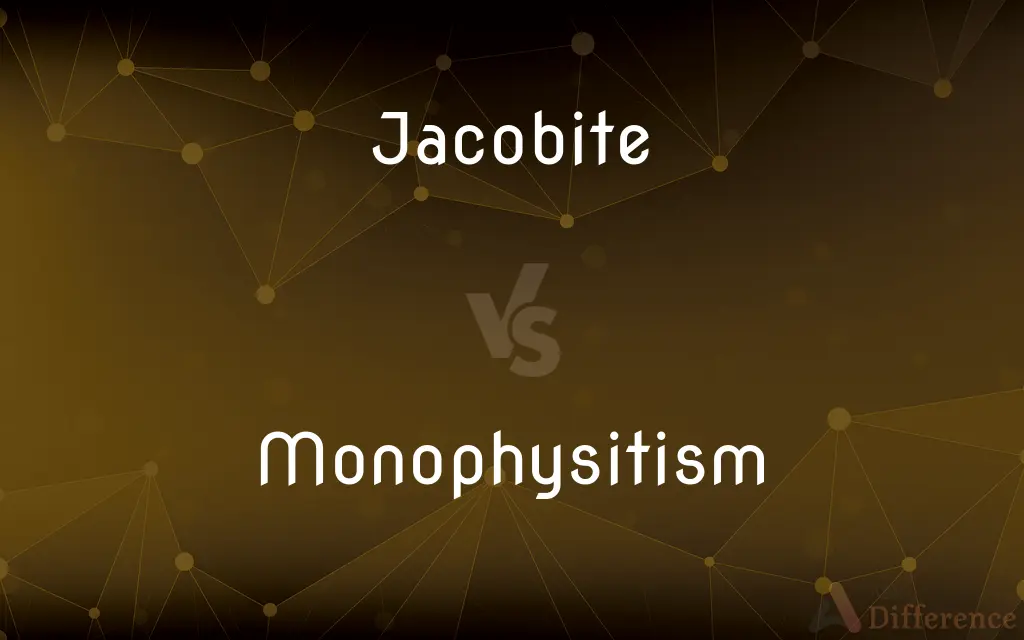Jacobite vs. Monophysitism — What's the Difference?

Difference Between Jacobite and Monophysitism
ADVERTISEMENT
Compare with Definitions
Jacobite
A supporter of the deposed James II and his descendants in their claim to the British throne after the Revolution of 1688. Drawing most of their support from Catholic clans of the Scottish Highlands, Jacobites made attempts to regain the throne in 1689–90, 1715, 1719, and 1745–6, finally being defeated at the Battle of Culloden.
Monophysitism
Monophysitism ( or ) or monophysism () is a Christological term derived from the Greek μόνος (monos, "alone, solitary") and φύσις (physis, a word that has many meanings but in this context means "nature"). It is defined as "a doctrine that in the person of the incarnated Word (that is, in Jesus Christ) there was only one nature—the divine".
Jacobite
A member of the Syrian Orthodox Church (Monophysite).
Monophysitism
An adherent of the doctrine that in the person of Jesus there was but a single, divine nature.
Jacobite
Relating to or denoting supporters of the deposed James II and his descendants in their claim to the British throne after the Revolution of 1688
The Jacobite rebellion
ADVERTISEMENT
Monophysitism
(Christianity) A Christological doctrine, generally considered heterodox or heretical, holding that Jesus Christ has a single nature, which is either wholly divine or partially human and partially divine.
To claim that Jesus did not have human feelings amounts to monophysitism.
Jacobite
A supporter of James II of England or of the Stuart pretenders after 1688.
Monophysitism
The beliefs and practices of the Oriental Orthodox Church.
Jacobite
A partisan or adherent of James the Second, after his abdication, or of his descendants, an opposer of the revolution in 1688 in favor of William and Mary.
Monophysitism
A Christian heresy of the 5th and 6th centuries that challenged the orthodox definition of the two natures (human and divine) in Jesus and instead believed there was a single divine nature
Jacobite
One of the sect of Syrian Monophysites. The sect is named after Jacob Baradæus, its leader in the sixth century.
Jacobite
Of or pertaining to the Jacobites.
Jacobite
A supporter of James II after he was overthrown or a supporter of the Stuarts
Share Your Discovery

Previous Comparison
Moreover vs. Thus
Next Comparison
Ensnaring vs. Snare














































